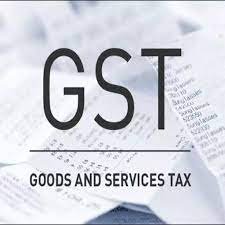GST Assistant

Introduction:
In the landscape of modern taxation, efficiency and accuracy are paramount. As businesses navigate the complexities of tax compliance, especially in jurisdictions with intricate tax structures like India, the need for reliable assistance becomes apparent. In this context, the advent of GST (Goods and Services Tax) Assistants has emerged as a pivotal development. These digital tools are designed to simplify GST compliance processes, alleviate the burden on businesses, and ensure adherence to regulatory requirements. This article delves into the significance, functionalities, and impact of GST Assistants in the realm of taxation.
Understanding GST:
GST, introduced in India in 2017, marked a significant shift in the country’s indirect tax regime. It replaced a myriad of state and central taxes with a unified tax structure, aimed at fostering economic integration and simplifying compliance. GST encompasses various aspects, including registration, return filing, invoicing, and tax payment, posing a considerable challenge for businesses to navigate efficiently.
Challenges Faced by Businesses:
The implementation of GST brought about several challenges for businesses, particularly small and medium enterprises (SMEs). These challenges include understanding the intricate tax structure, timely filing of returns, accurate invoicing, and compliance with GST rules and regulations. Non-compliance can lead to penalties, fines, and legal repercussions, making it imperative for businesses to ensure adherence to GST requirements.
Role of GST Assistants:
GST Assistants serve as invaluable tools in assisting businesses with GST compliance. These digital platforms leverage advanced technologies such as artificial intelligence (AI) and machine learning (ML) to automate various aspects of GST compliance, thereby streamlining processes and reducing the risk of errors.
Key Functionalities of GST Assistants:
- Registration Assistance: GST Assistants guide businesses through the registration process, ensuring all necessary documents are submitted and compliance requirements are met.
- Return Filing: One of the most critical aspects of GST compliance is timely filing of returns. GST Assistants automate this process by generating return forms, validating data, and assisting in filing returns accurately and efficiently.
- Invoicing: GST compliance mandates specific invoicing requirements. GST Assistants help businesses generate GST-compliant invoices, ensuring adherence to invoicing norms and reducing the likelihood of errors.
- Tax Calculation: Calculating GST liabilities accurately can be challenging, especially for businesses with complex transactions. GST Assistants leverage automation to compute taxes based on transaction data, reducing the likelihood of errors and ensuring compliance with tax regulations.
- Compliance Monitoring: GST regulations are subject to frequent updates and changes. GST Assistants help businesses stay updated with regulatory changes, thereby ensuring ongoing compliance with GST laws.
Impact of GST Assistants:
The introduction of GST Assistants has had a profound impact on businesses and tax professionals alike.
- Enhanced Efficiency: By automating time-consuming tasks such as return filing and invoicing, GST Assistants enable businesses to operate more efficiently, allowing them to focus on core activities.
- Reduced Errors: Manual tax compliance processes are prone to errors, which can have significant consequences for businesses. GST Assistants minimize the risk of errors by automating calculations and validation processes, thereby enhancing accuracy and compliance.
- Cost Savings: By streamlining compliance processes and reducing the need for manual intervention, GST Assistants help businesses save costs associated with hiring tax professionals or outsourcing compliance tasks.
- Improved Compliance: Compliance with GST regulations is crucial for businesses to avoid penalties and legal repercussions. GST Assistants facilitate compliance by guiding businesses through the intricacies of GST laws and ensuring adherence to regulatory requirements.
- Accessibility: GST Assistants are typically accessible online, making them convenient for businesses of all sizes and locations. This accessibility ensures that businesses can avail themselves of GST compliance assistance anytime, anywhere.

Future Outlook:
As technology continues to evolve, the role of GST Assistants is expected to expand further. Future developments may include integration with other business systems such as accounting software, enhanced analytics capabilities for better insights into tax data, and integration with government portals for seamless interaction with tax authorities.
Conclusion:
In the dynamic landscape of taxation, GST Assistants play a crucial role in simplifying GST compliance for businesses. By leveraging advanced technologies and automation, these digital platforms streamline processes, enhance accuracy, and ensure adherence to regulatory requirements. As businesses continue to embrace digital transformation, the role of GST Assistants is poised to become even more significant, facilitating seamless GST compliance in the years to come.



